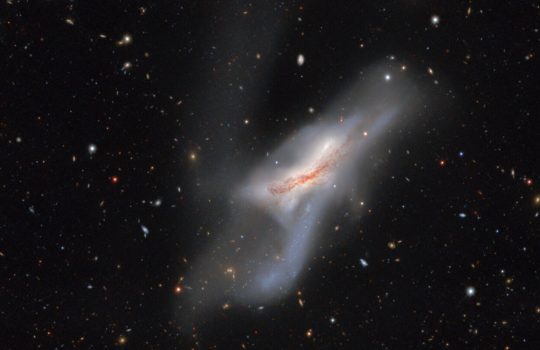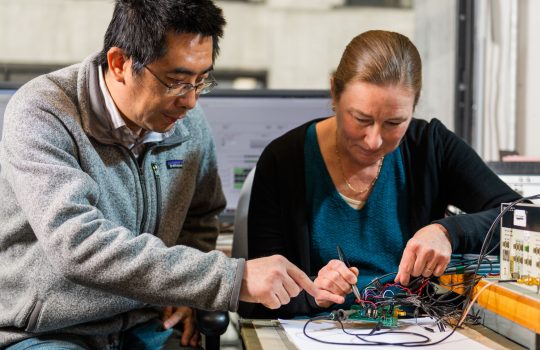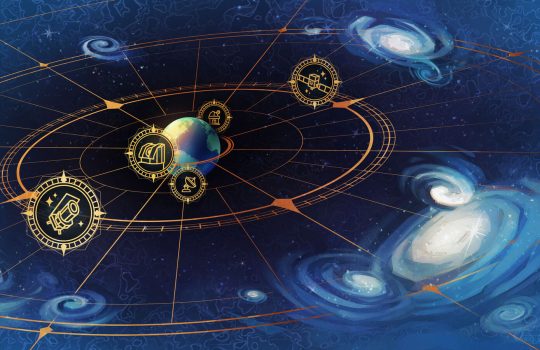First results from BREAD experiment demonstrate a new approach to searching for dark matter
U Chicago News, April 2, 2024
A collaboration scientists working on the Broadband Reflector Experiment for Axion Detection recently released their first results in the search for dark matter. Although they did not find dark matter, they narrowed the constraints for where it might be and demonstrated a unique approach that may speed up the search for the mysterious substance, at relatively little space and cost.





